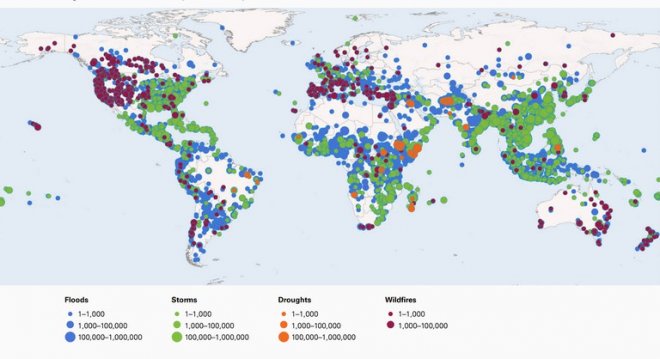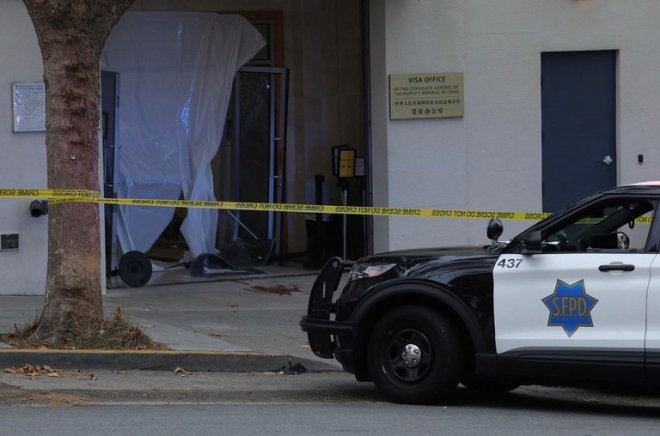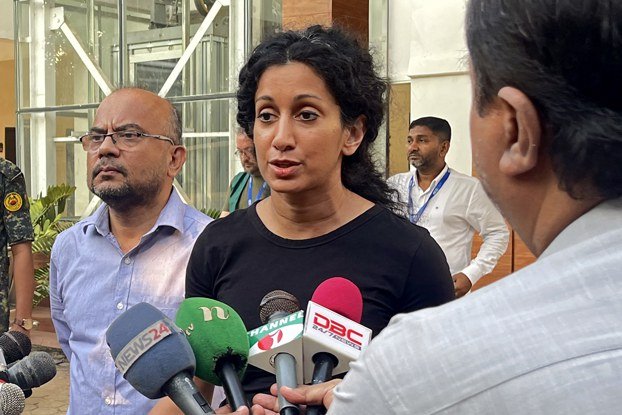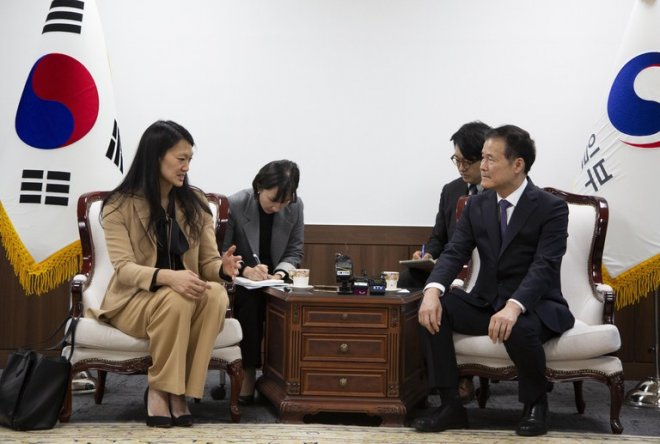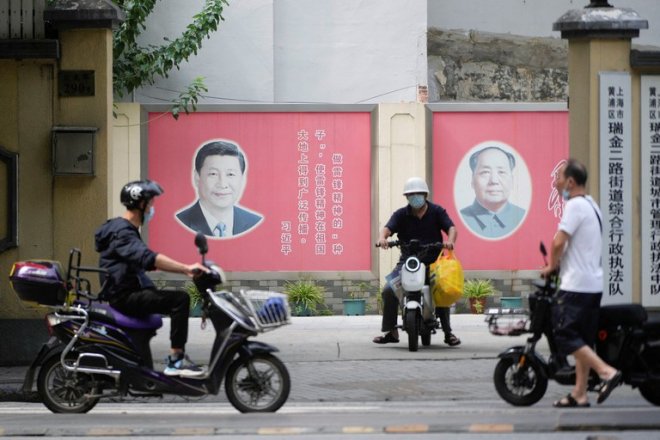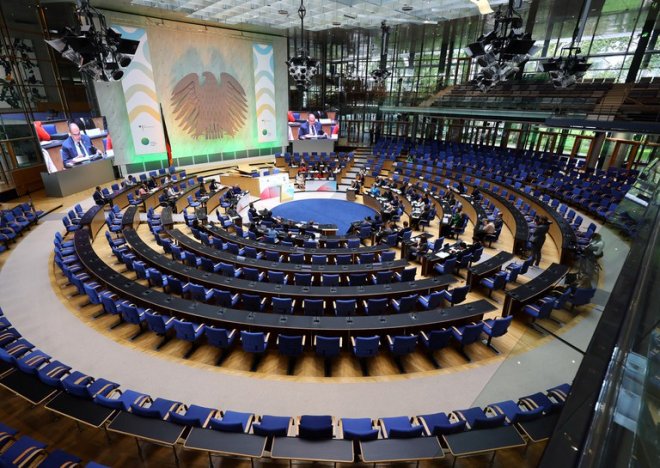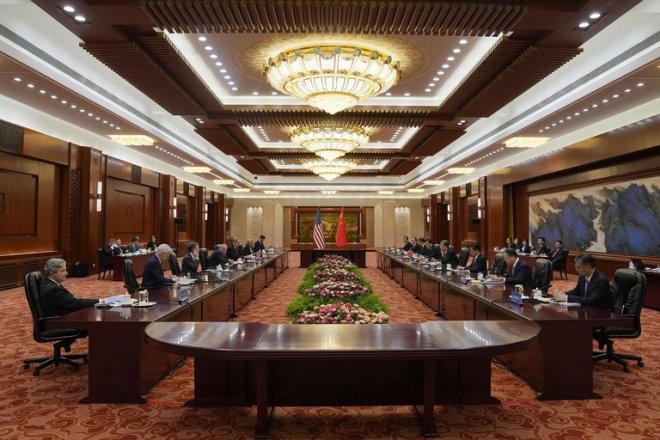Former Chinese top leader Jiang Zemin dies at age 96
Former Chinese President Jiang Zemin, who led the country during its emergence from isolation after the 1989 Tiananmen massacre to a decade of rapid economic growth, died on Wednesday at the age of 96, Chinese state media reported.
Jiang died in his home city of Shanghai just after noon on Wednesday of leukemia and multiple organ failure, Xinhua news agency said, publishing a letter to the nation from the Communist Party, the military and other top organs, expressing "profound grief.”
“Our beloved Comrade Jiang Zemin died of leukemia and multiple organ failure after all medical treatments had failed,” Xinhua quoted the letter as saying. “Comrade Jiang Zemin was an outstanding leader enjoying high prestige acknowledged by the whole Party, the entire military and the Chinese people of all ethnic groups."
Jiang, who served as state president from 1993 to 2003, was “a great Marxist, a great proletarian revolutionary, statesman, military strategist and diplomat, a long-tested communist fighter, and an outstanding leader of the great cause of socialism with Chinese characteristics,” the letter said.
![]() In this Nov. 14, 2012 photo, former Chinese President Jiang Zemin attends the closing ceremony for the 18th Communist Party Congress at the Great Hall of the People in Beijing, China. Credit: Lee Jin-man/AP
In this Nov. 14, 2012 photo, former Chinese President Jiang Zemin attends the closing ceremony for the 18th Communist Party Congress at the Great Hall of the People in Beijing, China. Credit: Lee Jin-man/AP![]()
Breaking out of isolation
In a party known for gray, dour apparatchiks, Jiang was comparatively colorful, breaking into song, reciting poetry and speaking English phrases in public meetings with foreign leaders and the media.
Plucked from obscurity to head the ruling Communist Party after the deadly Tiananmen crackdown on pro-democracy protesters, Jiang was initially regarded as a mere placeholder during a time of chaos and international isolation.
But he served 15 years in the key post of head of the military, retiring in 2004, and played a key role in breaking China out of isolation.
![]() In this Oct. 18, 2017 photo, former Chinese President Jiang Zemin checks his wristwatch during the opening session of China"s 19th Party Congress in Beijing, China. (Mark Schiefelbein/AP)
In this Oct. 18, 2017 photo, former Chinese President Jiang Zemin checks his wristwatch during the opening session of China"s 19th Party Congress in Beijing, China. (Mark Schiefelbein/AP)
During his tenure, China mended strained diplomatic ties after Tiananmen, recovered sovereignty over Hong Kong, entered the World Trade Organization and won the right to host the 2008 Summer Olympics.
In domestic politics, he led the effort to admit entrepreneurs to the ruling Communist Party, drafting a clunky ideology known as the “Theory of Three Represents.”
Although China had been an authoritarian one-party state since its founding by Mao Zedong in 1949, the Jiang era was liberal by party standards compared to the decade under current President Xi Jinping, who has shifted the country in a totalitarian direction.
A separate Xinhua report said that flags would fly at half-mast at Tiananmen, the Great Hall of the People and other prominent government buildings in China, as well as Chinese embassies around the world.
“In accordance with China"s practice, foreign governments, political parties and friendly personages will not be invited to send delegations or representatives to China to attend the mourning activities,” the report said.
[圖擷取自網路,如有疑問請私訊]
Jiang died in his home city of Shanghai just after noon on Wednesday of leukemia and multiple organ failure, Xinhua news agency said, publishing a letter to the nation from the Communist Party, the military and other top organs, expressing "profound grief.”
“Our beloved Comrade Jiang Zemin died of leukemia and multiple organ failure after all medical treatments had failed,” Xinhua quoted the letter as saying. “Comrade Jiang Zemin was an outstanding leader enjoying high prestige acknowledged by the whole Party, the entire military and the Chinese people of all ethnic groups."
Jiang, who served as state president from 1993 to 2003, was “a great Marxist, a great proletarian revolutionary, statesman, military strategist and diplomat, a long-tested communist fighter, and an outstanding leader of the great cause of socialism with Chinese characteristics,” the letter said.
 In this Nov. 14, 2012 photo, former Chinese President Jiang Zemin attends the closing ceremony for the 18th Communist Party Congress at the Great Hall of the People in Beijing, China. Credit: Lee Jin-man/AP
In this Nov. 14, 2012 photo, former Chinese President Jiang Zemin attends the closing ceremony for the 18th Communist Party Congress at the Great Hall of the People in Beijing, China. Credit: Lee Jin-man/AP
Breaking out of isolation
In a party known for gray, dour apparatchiks, Jiang was comparatively colorful, breaking into song, reciting poetry and speaking English phrases in public meetings with foreign leaders and the media.
Plucked from obscurity to head the ruling Communist Party after the deadly Tiananmen crackdown on pro-democracy protesters, Jiang was initially regarded as a mere placeholder during a time of chaos and international isolation.
But he served 15 years in the key post of head of the military, retiring in 2004, and played a key role in breaking China out of isolation.
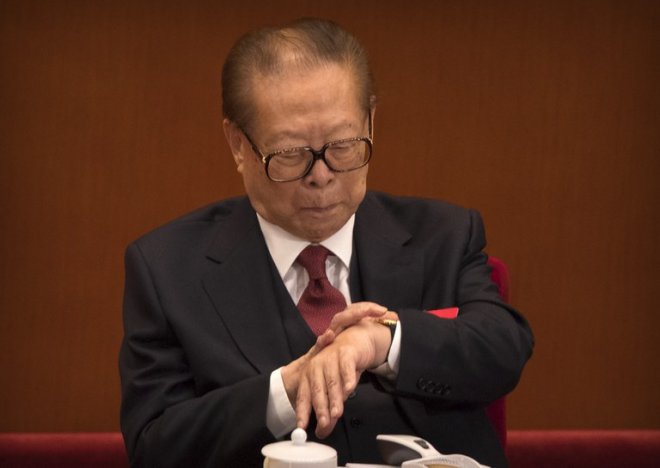 In this Oct. 18, 2017 photo, former Chinese President Jiang Zemin checks his wristwatch during the opening session of China"s 19th Party Congress in Beijing, China. (Mark Schiefelbein/AP)
In this Oct. 18, 2017 photo, former Chinese President Jiang Zemin checks his wristwatch during the opening session of China"s 19th Party Congress in Beijing, China. (Mark Schiefelbein/AP)During his tenure, China mended strained diplomatic ties after Tiananmen, recovered sovereignty over Hong Kong, entered the World Trade Organization and won the right to host the 2008 Summer Olympics.
In domestic politics, he led the effort to admit entrepreneurs to the ruling Communist Party, drafting a clunky ideology known as the “Theory of Three Represents.”
Although China had been an authoritarian one-party state since its founding by Mao Zedong in 1949, the Jiang era was liberal by party standards compared to the decade under current President Xi Jinping, who has shifted the country in a totalitarian direction.
A separate Xinhua report said that flags would fly at half-mast at Tiananmen, the Great Hall of the People and other prominent government buildings in China, as well as Chinese embassies around the world.
“In accordance with China"s practice, foreign governments, political parties and friendly personages will not be invited to send delegations or representatives to China to attend the mourning activities,” the report said.
[圖擷取自網路,如有疑問請私訊]
|
本篇 |
不想錯過? 請追蹤FB專頁! |
| 喜歡這篇嗎?快分享吧! |
相關文章
AsianNewsCast









